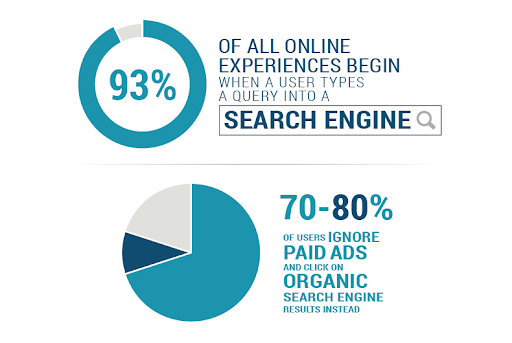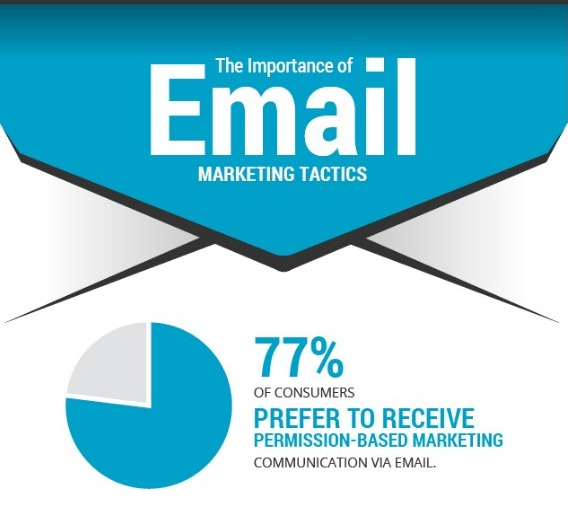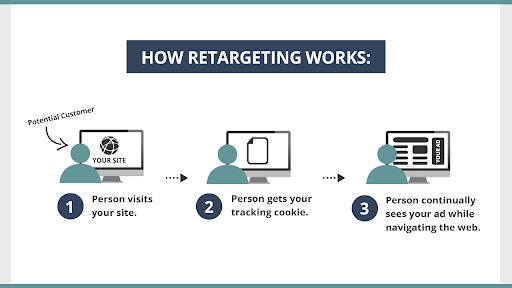Search engine optimization is a critical component for most e-commerce website strategies. Many e-commerce companies find pay per click advertising cost prohibitive unless they have a strong repeat customer business model or big-ticket items for sale on their website. As a result, SEO becomes prominent in their thinking and smart business owners are always looking for an edge over the competition.
In this article, we will cover five solid strategies for beefing up your e-commerce search engine optimization execution. SEO is a dynamic field and Google is still the dominant player. Ninety-three percent of all online experiences start with a search engine query, making up-to-date SEO strategies important to any e-commerce business owner.

Basic SEO
At this point in time, most website owners know that basic SEO is incredibly important if you plan to have meaningful organic traffic. Unfortunately, to some professionals, this still means a one-time technical exercise that is done to a website.
The idea that you can “optimize” your website for SEO and then expect outstanding results is fairly dated. That being said, it is critical that the basic factors of on-page optimization are well tended for.
Ensuring that your title tags and H1 tags are well-positioned for the keyword you hope to rank on is still smart. Monitoring your overall site load speed end-user wait times is also critical as Google has shown a preference for faster sites.
Securing your site with SSL certificates is also a must for modern SEO. Google has published guidelines and a strong preference for secured sites. While you’re at it, hook your site up to Search Console so that you have important feedback from Google regarding the crawl-ability of your website.
Being mobile-friendly is no longer optional. Google announced their mobile first index quite a while ago and you want to be capturing as much non-desktop traffic as possible.
Write Longer Content
Content marketing has become quite popular over the last few years as organic rankings have become more competitive. In the e-commerce world, the idea that a title tag and H1 will get your product page to outrank the competition is no longer possible.
As painful as this may sound, the websites that are ranking have shifted their SEO strategy for content marketing and are producing much longer copy with more in-depth information. The typical webpage with a page one ranking now has an average of 1500 words on it.

Many e-commerce website owners view this statistic with concern and find it unrealistic that they could produce content for the thousands of pages on their website. Unless your product catalog is extremely small, your website page count is likely to be very high because it is database-driven based on your product inventory. In these situations, it is unlikely you can produce 1500 words of content for every product page.
Be strategic with this knowledge and pick certain pages to focus on for content production. Some e-commerce businesses build category pages and then invest in long-form content for those pages that have multiple listings for several products that are all related. Others pick high volume or high margin products and invest in content marketing for those specific pages based on past sale performance.
Whatever content marketing strategy you adopt, you need to know that your competition is heavy into long-form content and that Google is rewarding those pages with high rankings.
Backlinks to Important Pages
In addition to beefing up content marketing and the depth of your copy, you need to understand that backlinks are still as important as ever to achieving a high rank in Google.
Over 2 million blog posts are created each day, making the internet a very crowded place. Backlinks are still a major differentiator that help Google determine which content to rank highly and present to users on page one.

As you roll out your content marketing, you will need to have a backlink building strategy in place if you hope to achieve lucrative traffic from organic sources.
Many e-commerce website owners are surprised that their ratio of content production to content promotion is woefully misaligned. Search engine optimization experts often say that 20% of the effort should go towards content production and the other 80% towards promotion.
In other words, after you write a great page for a product or a category of products, plan to spend six months promoting that specific page so that it achieves high rankings in Google and recoups your investment.
Coordinated Social Media and Email Marketing
The fourth tip for ensuring your search engine optimization effort brings in strong flow of e-commerce customers is to coordinate your efforts across digital marketing channels. Social media and email marketing are excellent companions for SEO and are often siloed unnecessarily.
Having a strong social media presence means you have ready-made followers who are eager to consume your content. The same can be said about email marketing, in the form of a list of email addresses from users who have given you permission to update them when your content is ready for consumption.

As interesting content is developed using the strategies mentioned above, blast your list and notify people through your social media channels that the content is available. This will bring a ready-made audience and immediate social proof in the form of conversation and comments as well as likes, shares, and retweets. All this activity increases the reach of your content, brings users back to your website, and increases the odds of other signals Google will see that will help your rankings.
Retargeting Ads for Your Visitors
The final tip for improving your overall return on investment from SEO is to ensure that you run retargeting ads for your visitors who originated through an organic channel. While this tip is technically a PPC strategy, if you’re using a first touch attribution model, retargeting conversions are actually counted as SEO.

Retargeting is an interesting technology available on Google ads platform where display ads are only shown to users on third-party sites in Google’s advertising network who have previously visited your website.
In other words, when a visitor comes to your website, Google drops a tracking pixel in that user’s cookies. As that user drives around the internet, visiting other popular websites that are also members of Google’s advertising network, ads can be selectively shown to only this audience.
This approach to advertising severely limits the reach of your ads to only those who have been to your website, which many believe increases the odds of conversion and keeps cost low.
Conclusion
Search engine optimization is extremely competitive for all businesses as the volume of content on the internet has increased and Google has to reduce the amount of space on page one for organic listings.
E-commerce business owners have a special challenge because their websites are often large and database driven, and thin on content. Using the strategies outlined above, an e-commerce shop can beef up their content to target specific product categories, build links to these pages, and coordinate their marketing efforts across channels to ensure broad reach and good rankings.
Arthor BIO
Adam Stetzer holds a Ph.D. in Industrial and Organizational Psychology and has published on the topics of Internet marketing, absenteeism, employee and customer satisfaction, productivity and safety, and culture. He has founded several technology firms, and is currently CEO at HubShout, a white label SEO reseller firm. In his 25 year career he has worked with companies such as General Electric, Coca Cola, Pepsi Cola, Verizon, AT&T, Ford, LendingTree, American Express and ChevronTexaco. Adam has advised over 1,000 small business owners and blogs frequently.







